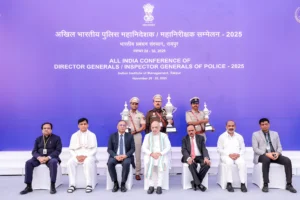
The oil ministry said today that the government has yet to accept a report of the energy transition committee that recommended banning the use of diesel-powered four-wheelers in cities with over 10 lakh population and switching to electric and gas-fuelled vehicles by 2027.
The committee’s study, chaired by former oil secretary Tarun Kapoor, also advised that motorcycles, scooters, and three-wheelers with internal combustion engines be phased out by 2035.
The Ministry of Petroleum and Natural Gas tweeted, “Report of the Energy Transition Advisory Committee #ETAC has been received by the #MoPNG. The Govt. of India is yet to accept #ETAC Report”, through its official Twitter handle.
Report of the Energy Transition Advisory Committee #ETAC has been received by the #MoPNG. The Govt. of India is yet to accept #ETAC Report.
— Ministry of Petroleum and Natural Gas #MoPNG (@PetroleumMin) May 9, 2023
The commission, which delivered its recommendations to the government in February this year, stated that there should be no more diesel city buses in urban areas in around ten years.
The ministry stated, “India is committed to NetZero by 2070. ETAC has made wide-ranging and forward-looking recommendations for the shift to LowCarbonEnergy. ETAC has a futuristic outlook”.
“The suggestions of ETAC relate to multiple ministries & a range of stakeholders including states. Consultations with various stakeholders on the report are yet to be initiated. No decision has yet been taken on ETAC recommendations”, the ministry added.
According to the group, EVs might be marketed as the best alternative for phasing out internal combustion engine two/three-wheel vehicles by 2035. Policy support for ethanol-blended fuel with an increasing blend ratio is required in the interim period.
It called for four-wheelers, including passenger cars and taxis to transition partially to electric and partially to ethanol-blended petrol, with nearly 50 percent share in each category.
The report said, “Diesel-driven 4-wheelers may be eliminated as soon as possible. Therefore, a ban on diesel-powered four-wheelers in all million-plus cities and all towns with high pollution has to be enforced in five years, i.e. by 2027”.
CNG as a transition fuel (up to 10-15 years) has been underlined for the transition to EVs.
The report further reads, “Vehicles with flex-fuel capabilities and hybrids may be promoted in the short and medium terms. This can be done through the application of fiscal tools like taxation”.
According to the report, the government should consider a targeted extension of incentives provided under the Faster Adoption and Manufacturing of Electric and Hybrid Vehicles scheme (FAME) beyond March 31.
The paper advocated for new registrations of purely electric-powered city delivery vehicles beginning in 2024, as well as increased usage of railways and gas-powered trucks for cargo transportation.
These actions will assist India in reaching its target of achieving net zero emissions by 2070.
Net zero, or becoming carbon neutral, is not adding to the amount of greenhouse gases in the environment.
Also read: Study Furnishes The Evidence Of Climate Change Is Driven By Humans
After China, the United States, and the EU, India is the world’s fourth largest emitter of carbon dioxide. However, because of its large population, its emissions per capita are substantially lower than those of other major international economies.
In 2019, India released 1.9 tonnes of CO2 per head of population, compared to 15.5 tonnes in the United States and 12.5 tonnes in Russia.
To get net zero, the government has set a goal of getting 50 percent of the nation’s energy from renewable resources by 2030 and reducing overall anticipated carbon emissions by the same.
In order to transition, it intends to increase the use of natural gas, which is less polluting than liquid fuels such as diesel, in industry and automobiles. India wants to increase the amount of natural gas in its energy mix to 15 percent by 2030 up from 6.7 percent presently.
According to analysis, petrol, and diesel use in India would peak in 2040 and then fall due to vehicle electrification. LPG usage is predicted to fall after 2030 due electrification of cooking, eventually reaching nil with complete electrification by 2070.
The need for aviation fuel will continue to rise at a 3.5 percent CAGR, but it will be gradually replaced by sustainable fuel. The demand for naphtha is predicted to rise.
The report further reads, “The rate of transition in fossil fuel consumption is primarily dependent on the shift in the auto sector to EVs. With an aggressive transition to EVs due to policy mandates, there will be accelerated repurposing/closure of refineries for renewable energy/biofuel production and reduction of overall carbon footprint”.
(With input from PTI)
To read more such news, download Bharat Express news apps


















